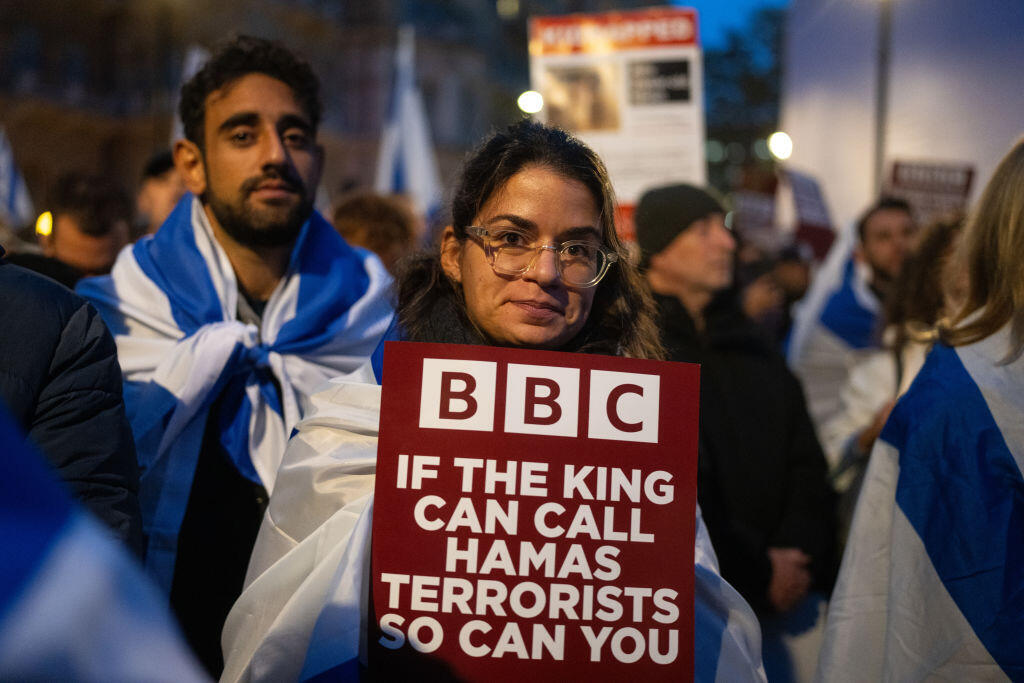Over the course of many years, Hamas was granted legitimacy within the international system and recognized as a political entity. Its leaders held meetings in Moscow and received support from Qatar, while also being associated with Paris Saint-Germain. However, it should be noted that Israel played a significant role in normalizing Hamas.
UN CALLED OUT FOR HYPOCRISY AND INACTION
Read more:
For a long time, Israel chose not to weaken Hamas in order to undermine the Palestinian Authority. The belief, shared by Benjamin Netanyahu, Bezalel Smotrich, and others, was that the extremist nature of Hamas and the division between the PA and the Gaza Strip served Israel's interests. By maintaining this division, the possibility of a unified Palestinian partner capable of negotiating political concessions with Israel was effectively rejected. Meanwhile, Hamas observed, prepared, and waited for the opportune moment.
The international media has grasped the underlying message conveyed by Israel and the region. They have witnessed prisoner exchange deals, cycles of combat, and cease-fires involving Hamas. While Israel gave the impression that reaching a "settlement" with Hamas was possible, Hamas has deceived Israel in the past. This raises the question of why the international media should treat Israel's talks with Hamas, facilitated through a third party, any differently.
Answering this question poses challenges, as journalists are expected to evaluate situations based on their merits. It is important to acknowledge that Hamas seized control of the Gaza Strip through a military coup and has been responsible for the deaths of numerous Palestinians. They have repeatedly initiated conflicts against Israel. While the closure or "siege" imposed on the Strip may not have been the journalists' primary concern, they have focused on Hamas' aspirations for other achievements, particularly within the "resistance front" against the State of Israel.
On October 7, numerous narratives and beliefs were shattered, with a majority of them revolving around Israel. One such belief was the notion that relations could be "arranged" with Yahya Sinwar, in which everyone seemed to be involved. Another belief was that the IDF could effectively handle any Hamas attack, and that there would be reliable intelligence available, or at least some form of intelligence.
The Israeli frustration toward the international media arises from the fact that, despite condemning the horrific massacres, it did not let go of its own misguided belief. This belief was that the conflict was simply a matter between "two sides," allowing for the IDF to be quoted while presenting the "Hamas position" as if it were not a fanatical, murderous, and ruthless organization. The reality is that the Gaza Strip is a hotbed of falsehoods and deceit.
Throughout my years of following international media, including my time as a foreign news editor, I have noticed that when it comes to covering complex and tense international conflicts, foreign journalists, myself included, often make foolish errors. Their reporting lacks accuracy, as their audience tends to prefer a simplified narrative of "good guys" and "bad guys". Furthermore, most of these reporters only spend a short period of time in Israel before moving on to cover other events, making them strangers to their home audience.
 Nadav EyalPhoto: Avigail Uzi
Nadav EyalPhoto: Avigail UziHowever, these factors cannot and should not justify the behavior of serious media outlets regarding Hamas. Even if they and the State of Israel harbored the belief that Hamas had undergone moderation, the shocking truth was revealed two weeks ago. Just as one would not accept messages from representatives of ISIS, al-Qaeda, or Jabhat al-Nusra due to their reputation as obvious liars, the same skepticism should have been applied to Hamas. The Western press knows how to approach Vladimir Putin's Kremlin with a similar level of caution.
The significance of events after October 7th seems to have been overlooked by the international community. Here is the crux of the matter: Yahya Sinwar is a ruthless terrorist. The hardships endured by Palestinians and the injustices of the occupation do not grant legitimacy or credibility to a violent fundamentalist organization like Hamas. It is important to note that this assessment is not related to their presence in the territory. Foreign journalists operating in the Gaza Strip are unable to genuinely criticize Hamas rule, as they would risk expulsion from the area. They are well aware of this reality. The slogans of "being on the ground" and "seeing for yourself" do not apply in the context of a fanatical dictatorship.
However, when Israelis criticize the international media, they should exercise caution in attributing malicious intentions to reporters. More often than not, it is a matter of ignorance or limited professional ability rather than anti-Semitism. Sometimes, it is a principle followed by media outlets worldwide. For instance, in cases of bombings or attacks where the victims are clear, media organizations refrain from making definitive statements until the responsible party takes responsibility. While this caution may seem excessive, it is far preferable to hasty, dangerous, and false claims such as the IDF bombing a hospital.





